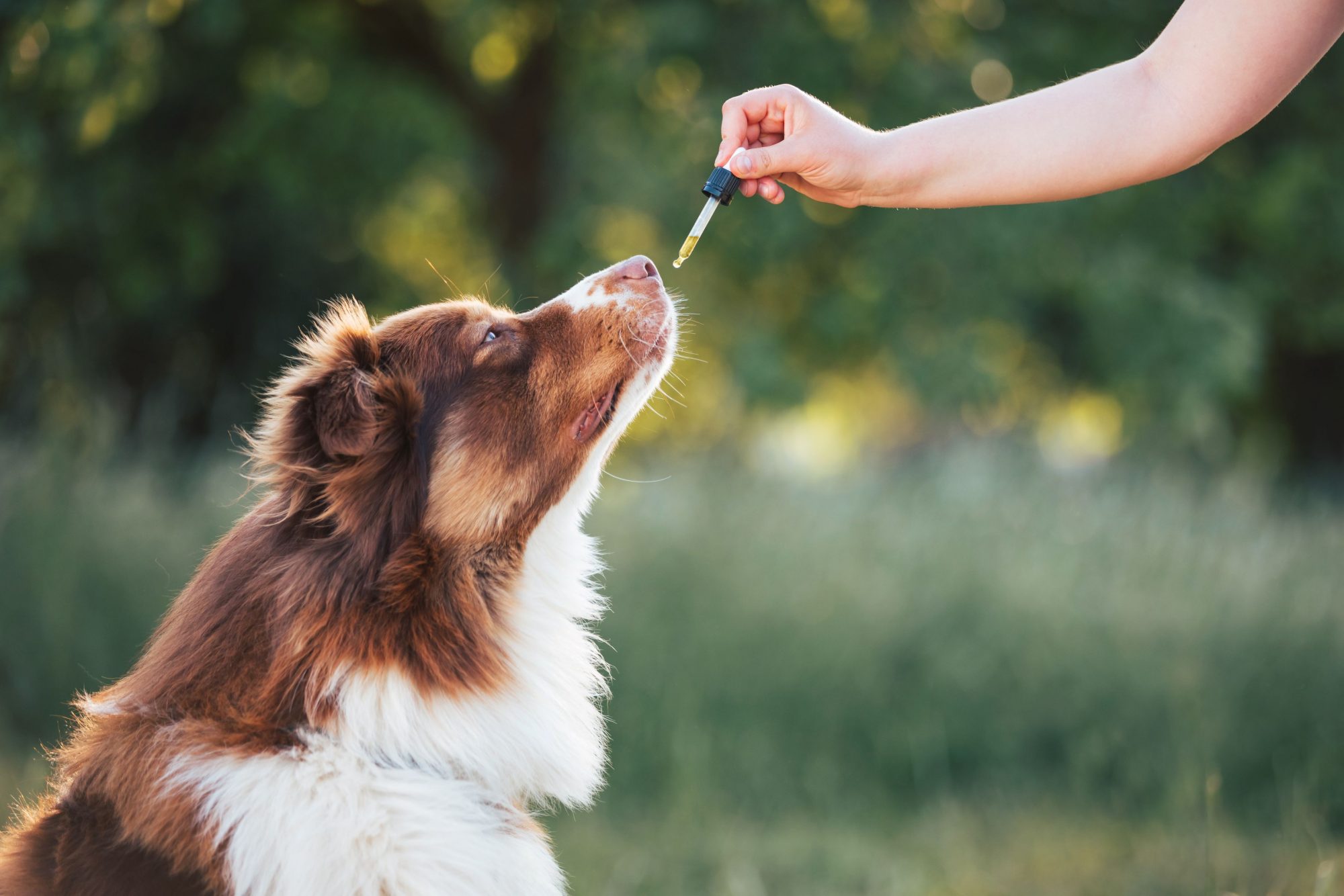Alternative Remedies for Anxiety in Pets

No one wants their pets to be anxious or stressed, yet anxiety in one form or another is not an uncommon diagnosis at The Bluffs Pet Clinic. While it may not seem like your pet has a whole lot to worry about, anxiety in pets can cause real problems.
What Anxiety in Pets Looks Like
While anxiety and stress in humans may look like stress eating, Netflix binges, and skin breakouts, anxiety in pets shows itself in a few different ways.
In fact, it can sometimes be difficult to discern stress from an actual medical problem. A pet who is anxious or stressed may exhibit:
- Behavioral changes
- Changes in appetite
- Weight loss
- Decreased social activity
- Increased hiding
- Overgrooming themselves
- Loss of housetraining
- GI symptoms like vomiting and/or diarrhea
- Destructive behaviors (digging, chewing, etc.)
- Vocalizing more
- Panting a lot
- Pacing or general restlessness
Come to think of it, stress in pets is kind of similar to that in people, isn’t it?
There are many reasons that a pet might be experiencing increased anxiety. Changes in environment or routine, scary or stressful sounds or experiences, or stressful things happening in the home can all bring on the anxiety.
Ways to Combat Stress
The biggest help to a pet who is experiencing anxiety is to recognize it for what it is. If you don’t identify the problem, you cannot help them.
While some pets do require medical intervention, there are definitely some alternative remedies for pet stress that you can start right away.
Decrease your pet’s anxiety by:
- Trying to manage your own stress so that it does not affect your animals
- Keep your routine consistent and predictable
- Provide structured time to interact with your pet daily
- Stimulate your pet’s brain and give them a healthy outlet with puzzle toys, interactive games, and training.
- Use pheromones like Feliway or Thunderease to help create a sense of calm
- Remove smaller stressors where possible (they add up!)
Alternative Remedies for Pet Stress
Other natural or alternative remedies for pet anxiety and stress can also be helpful. If your pet needs some extra help, contact us to discuss options like:
- Supplements including Zylkene and Solliquin
- Calming strains of probiotics such as Purina Veterinary Diets Calming Care
- Acupuncture options
- Tui na
- Pet herbal supplements
While medications sometimes are an important part of managing anxiety, alternative remedies for pet stress can be very helpful in many instances. If you think your pet may be experiencing anxiety or stress, don’t wait to make an appointment to discuss so we can get them feeling better faster.

